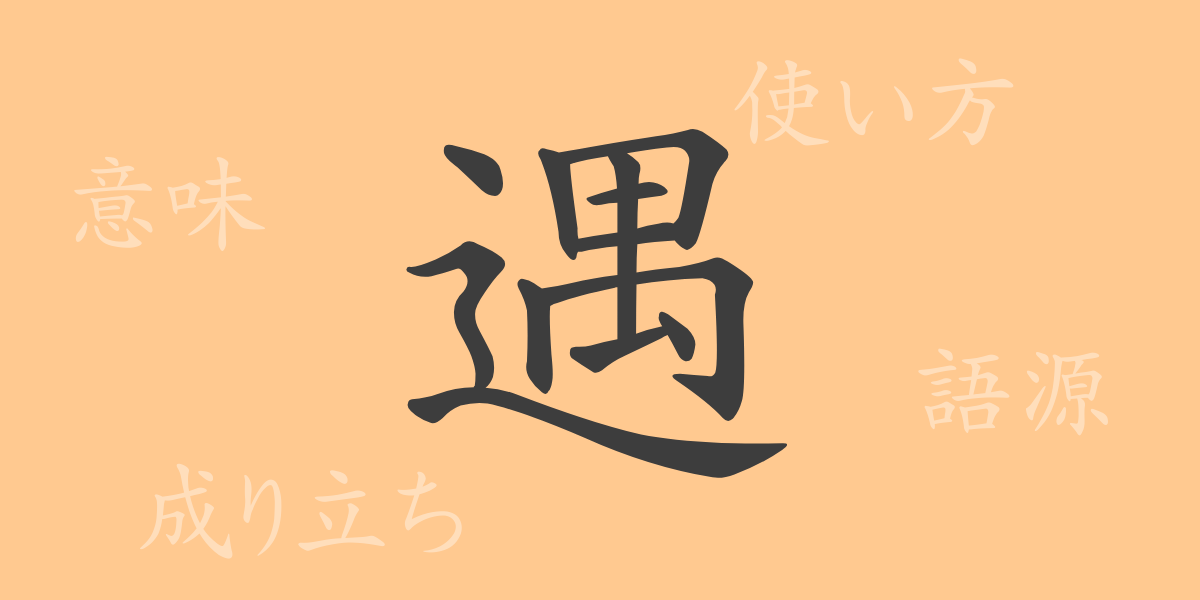The meaning embedded in each kanji character can be deeply understood through its form and history. The commonly used Japanese kanji “遇(ぐう)” is often seen in daily life, but there are few opportunities to delve into its origins and usage in detail. In this article, we will explore the formation, meaning, usage, reading, and related idioms of “遇(ぐう).”
Origin of 遇(ぐう) (Etymology)
The kanji “遇(ぐう)” evolved from ancient Chinese pictographs. Originally, it depicted a foot advancing on a path and a person meeting by chance, symbolizing “encounter” or “opportunity.” Over time, the meaning of encountering evolved to include not only chance meetings but also broader concepts such as reception and treatment.
Meaning and Usage of 遇(ぐう)
The kanji “遇(ぐう)” means “to meet” or “to encounter,” representing situations where people meet or encounter something. It also signifies how one is treated or received, commonly used in words like “厚遇(こうぐう)” meaning “warm reception” and “冷遇(れいぐう)” meaning “cold reception.”
Readings, Stroke Count, and Radical of 遇(ぐう)
Understanding the readings and structure of the kanji “遇(ぐう)” deepens its comprehension.
- Readings: On’yomi (Chinese reading) – グウ(ぐう); Kun’yomi (Japanese reading) – あう (au)
- Stroke count: 12 strokes
- Radical: 道部(どうぶ) (road radical)
Idioms, Phrases, and Proverbs Using 遇(ぐう)
Idioms, phrases, and proverbs using “遇(ぐう)” reflect the meanings embedded in the kanji.
- 厚遇(こうぐう) – To treat someone warmly.
- 冷遇(れいぐう) – To treat someone coldly.
- 遇(ぐう)するに足りる – Worth meeting.
- 遇(ぐう)するに応(おう)じず – To not meet expectations.
Conclusion on 遇(ぐう)
The kanji “遇(ぐう)” is used in various expressions indicating encounters and treatment. Understanding its usage within Japanese culture and language helps in appreciating the rich history and cultural context behind the words. Through exploring the world of words woven by “遇(ぐう),” we can re-examine our interactions and the various encounters in social life from a new perspective.

























